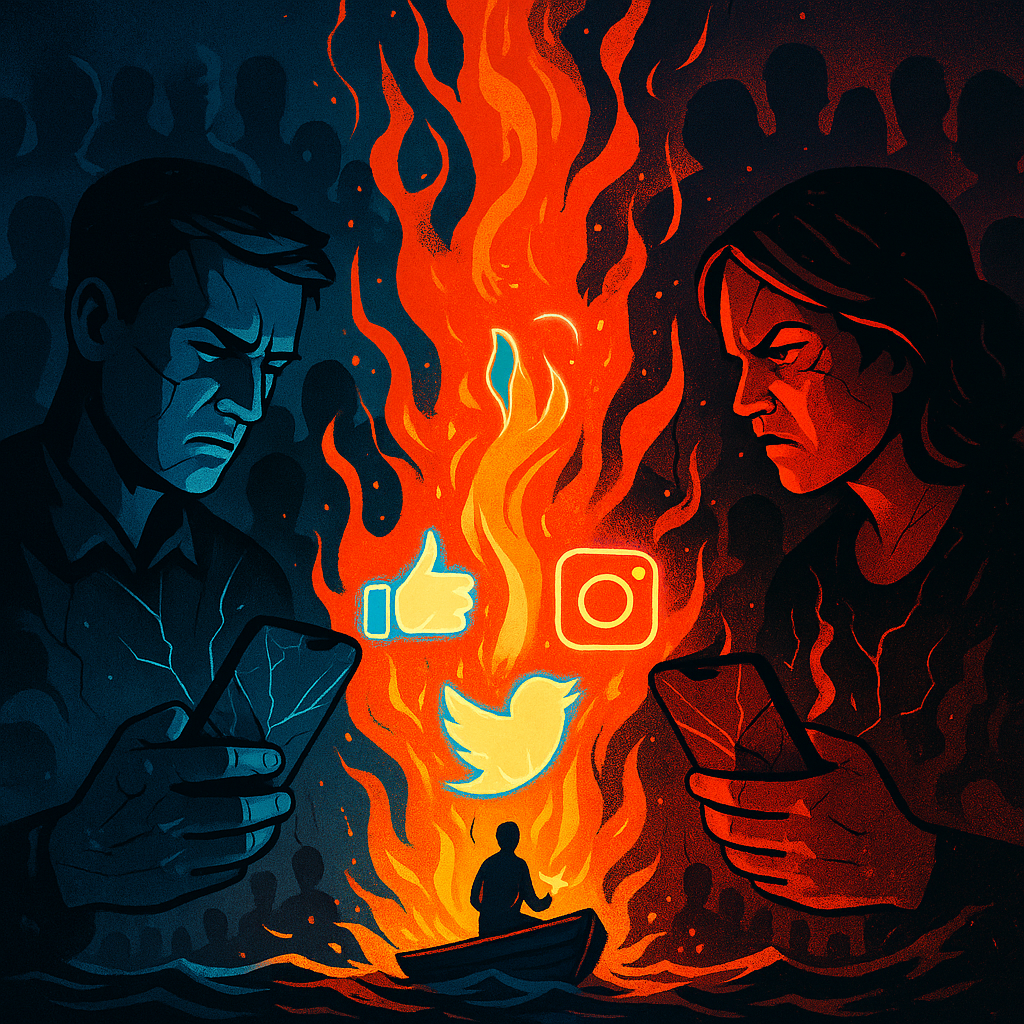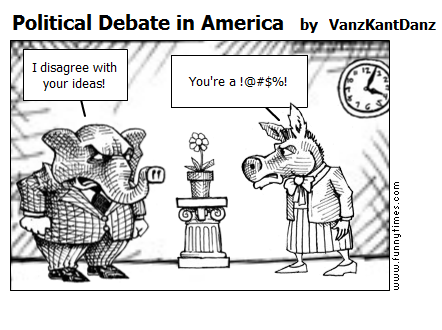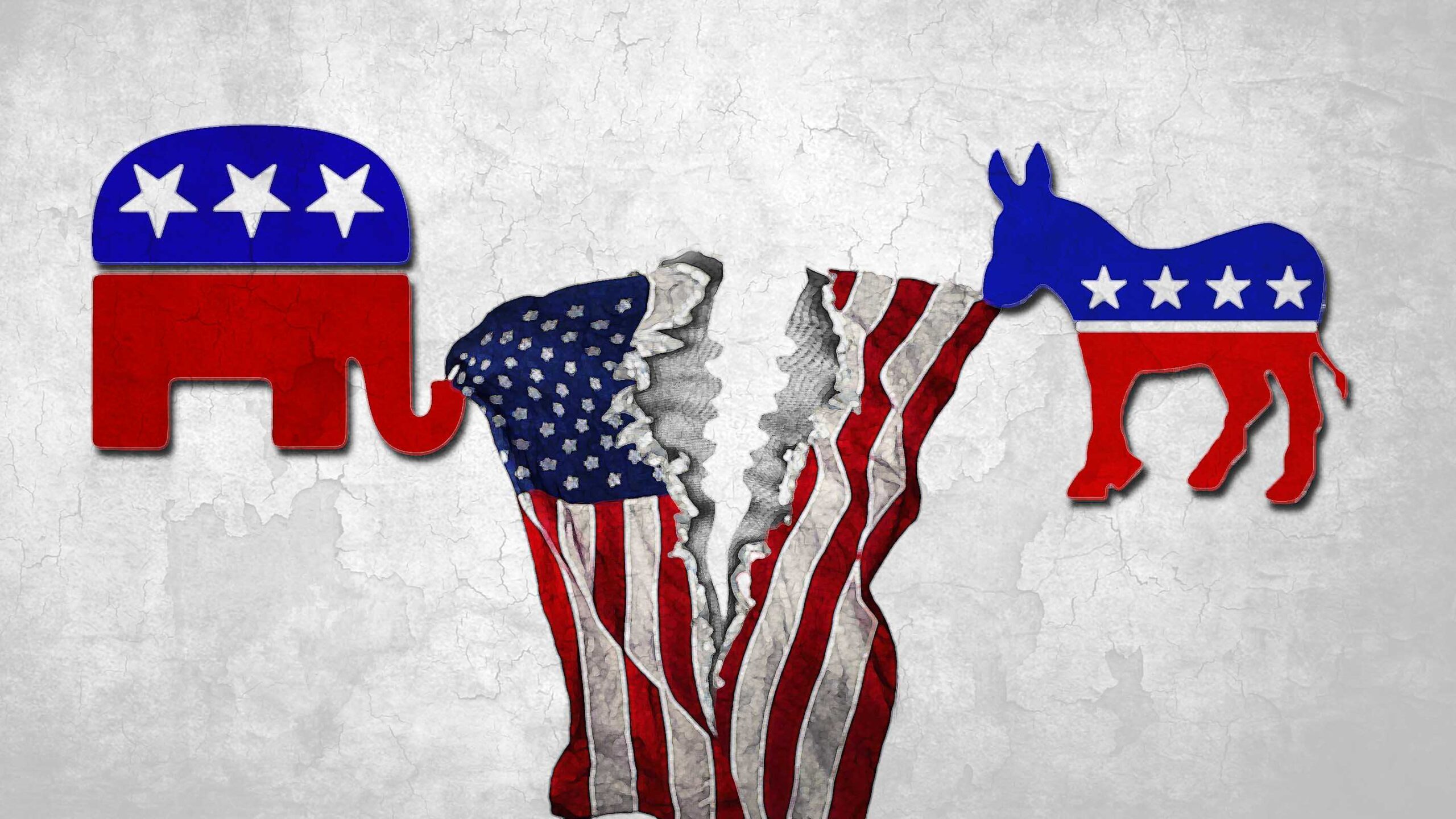Understanding the Deepening Political Divide in Our Country
In recent years, the United States has seen a dramatic increase in political polarization, a deepening political divide that has permeated every aspect of society. Ideological differences between Democrats and Republicans, liberals and conservatives, have become increasingly polarized, intensifying political discourse and shaping public opinion. This article aims to delve into the complex phenomenon of political polarization, exploring its historical roots, the various factors contributing to its escalation, and the consequences it has on democracy, governance, and social cohesion. By understanding the underlying causes and implications of this deepening divide, we can begin to seek strategies that foster constructive dialogue and bridge the gap between political factions.

Understanding the Scope and Significance of Political Polarization
In recent years, it seems like the political divide in America has become more pronounced than ever before. From heated debates on social media to contentious elections, the country appears to be deeply divided along party lines. But what exactly is political polarization, and why is it becoming increasingly significant?
Political polarization refers to the divergence of political attitudes and beliefs between different groups or individuals. It is the widening gap between conservatives and liberals, Republicans and Democrats, that is shaping the political landscape today. This divide is not limited to policy differences; it also includes deep ideological divisions and a lack of willingness to cooperate or compromise.
Understanding the scope and significance of political polarization is crucial because it affects governance, public discourse, and even personal relationships. It affects the decision-making process, as politicians are often driven by party loyalty rather than the pursuit of common goals. It also results in echo chambers, where individuals only interact with like-minded people, reinforcing their existing beliefs and making it difficult to find common ground. Recognizing and addressing political polarization is vital for a healthy democracy.
Tracing the Roots of Political Polarization
Early Political Divisions: From the Founding Fathers to the Civil War
Political polarization is not a new phenomenon in American history. From the early days of the Republic, divisions and disagreements have shaped the country’s political landscape.
The seeds of political polarization were sown even before the United States became an independent nation. Debates between Federalists and Anti-Federalists regarding the role of government and the balance of power laid the foundation for future disagreements. These early divisions only intensified over time, leading to the Civil War, which pitted the North against the South in a battle over slavery and states’ rights.
The Rise of Party Loyalties: Post-Civil War to the Civil Rights Era
Following the Civil War, the country experienced a shift in political allegiances. Republicans emerged as the party of the North, advocating for a strong federal government and civil rights. Meanwhile, Democrats became dominant in the South, promoting states’ rights and opposing racial integration. These party loyalties persisted for decades, creating a partisan divide that would impact the nation’s politics well into the civil rights era.
Factors Contributing to Political Polarization
Socioeconomic Disparities: Impact on Political Alignments
While historical events have influenced the divide, several socio-economic and cultural factors contribute to the deepening political polarization in America.
Socioeconomic disparities play a significant role in shaping political alignments. The growing income inequality and the shrinking middle class have led to divergent interests and priorities. Economic anxieties can create divisions between those who feel left behind and those who benefit from economic growth, creating political cleavages.
Cultural Fragmentation: The Role of Identity Politics
Cultural fragmentation and the rise of identity politics further fuel political polarization. As society becomes more diverse, individuals identify strongly with their racial, ethnic, or religious groups. This has led to a focus on issues of social justice and equality, which can create clashes with those who view these concerns as a threat to their traditional values and beliefs.
Technological Advancements: Internet, Social Media, and Algorythims
Technological advancements, particularly the internet and social media, have also played a significant role in exacerbating political polarization. Online platforms provide personalized news feeds, creating echo chambers that reinforce existing beliefs and limit exposure to opposing viewpoints. This ease of access to information has also resulted in the spread of disinformation, further deepening the divide.
The Impact of Echo Chambers and Disinformation
The Rise of News Personalization: Reinforcing Pre-existing Beliefs
The media landscape has undergone substantial changes in recent years, contributing to the polarization of American politics.
The rise of news personalization has played a significant role in reinforcing pre-existing beliefs and intensifying political polarization. Online algorithms tailor news content to fit individual preferences, creating echo chambers that shield people from different perspectives. This further entrenches their views, making it challenging to find common ground or engage in meaningful dialogue.
Spreading Disinformation: The Weaponization of Media
Moreover, the spread of disinformation has become a pervasive issue, amplifying political divisions. Disinformation deliberately spreads false or misleading information, often targeting specific groups to manipulate their opinions. The weaponization of media in this way undermines trust in traditional news sources and contributes to further polarization.
Recognizing the influence of media in fueling political polarization is crucial for developing strategies to bridge the divide. Promoting media literacy, encouraging diverse news consumption, and fostering critical thinking skills are essential steps in combating the negative impact of echo chambers and disinformation.
Political polarization in America has deep historical roots, but several contemporary factors contribute to its intensification. Socioeconomic disparities, cultural fragmentation, and technological advancements have all played a role in widening the political divide. Additionally, the media’s influence, through news personalization and the spread of disinformation, has further fueled polarization. Addressing political polarization requires a concerted effort to foster dialogue, promote understanding, and challenge the echo chambers that hinder progress towards a more unified society. It’s time to bridge the divide and find common ground, one conversation at a time.
Analyzing Hot-button Topics and Partisan Ideologies
Economic Policies: Redistribution, Taxes, and Market Regulation
In the realm of economic policies, deep political divides emerge on issues related to redistribution, taxes, and market regulation. Conservatives tend to favor lower taxes, limited government intervention, and a free market approach. On the other hand, liberals lean towards progressive taxation, wealth redistribution, and increased regulation to protect consumers and workers. These policy differences reflect contrasting views on the role of government in fostering economic growth and addressing income inequality.
Social Issues: LGBTQ+ Rights, and Immigration
Social issues have become another battleground for ideological clashes. LGBTQ+ rights, immigration, and racial equality elicit strong emotional responses from both ends of the political spectrum. Conservatives often hold traditional values and may oppose same-sex marriage and advocate stricter immigration policies. Liberals, on the other hand, tend to support equal rights for LGBTQ+ individuals and advocate for more inclusive immigration policies, believing in the importance of diversity and social progress.
Environmental Concerns: Climate Change and Energy Policies
Environmental concerns, particularly climate change and energy policies, have also become topics of intense partisan debate. Democrats tend to prioritize combating climate change through stricter regulations, transitioning to renewable energy, and promoting international cooperation. Republicans, on the other hand, often emphasize economic growth, energy independence, and skepticism towards the extent of human impact on the climate. These divergent positions highlight different values and priorities when it comes to preserving the environment.
Understanding the Role of Emotion and Identity in Polarization
Confirmation Bias: Selective Exposure and Interpretation of Information
Confirmation bias plays a significant role in deepening political polarization. People have a natural tendency to seek out information that aligns with their existing beliefs, while dismissing or ignoring contradictory evidence. This cognitive bias reinforces partisan views and creates echo chambers, where individuals are surrounded by like-minded people and shielded from opposing perspectives. The result is an increasingly divided society where different groups consume and interpret information through partisan lenses.
Cognitive Dissonance: The Psychological Discomfort of Challenging Beliefs
Cognitive dissonance further contributes to the deepening political divide. When confronted with information that challenges their beliefs, individuals experience psychological discomfort. To alleviate this discomfort, people may reject contradictory information and cling even more firmly to their existing views. This cognitive bias inhibits constructive dialogue and hampers efforts to find common ground. Overcoming cognitive dissonance requires individuals to confront their biases and be open to reconsidering their perspectives.
Consequences of Political Polarization
Weakening of Democratic Institutions and Governance
Political polarization has detrimental effects on democratic institutions and governance. As partisan divisions deepen, the ability to compromise and enact effective policies decreases. Elected officials become more focused on scoring political points and catering to their base, rather than finding common-sense solutions. This gridlock weakens the effectiveness of democratic systems and erodes public trust in government.
Polarization and Social Cohesion: Divisions in Communities and Families
Political polarization also seeps into communities and even families, straining social cohesion. Diverging political ideologies can create divisions based on identity, values, and priorities. Relationships can be strained when political discussions become heated and personal. It becomes increasingly challenging to maintain respectful and open-minded relationships with those who hold opposing views, leading to a fragmented society.
Political Gridlock and Policy Stagnation
One of the most visible consequences of political polarization is the prevalence of gridlock and policy stagnation. With stark ideological differences, finding common ground and passing meaningful legislation becomes an uphill battle. This gridlock prevents progress on crucial issues, leaving problems unresolved and public needs unaddressed. The inertia of policy stagnation exacerbates public frustration and erodes confidence in the political system.
Strategies for Bridging the Political Divide and Fostering Constructive Dialogue
Promoting Media Literacy and Critical Thinking
To bridge the political divide, promoting media literacy and critical thinking is crucial. Encouraging individuals to discern reliable sources of information, identify biases, and question their own beliefs can help counter confirmation bias. By actively seeking out diverse perspectives and engaging with credible news outlets, people can break free from echo chambers and foster more informed, nuanced discussions. Moreover, improving critical thinking skills equips individuals to evaluate evidence objectively and challenge their own preconceptions.
Remember, while political polarization can feel overwhelming, understanding its roots, consequences, and possible solutions is an essential step towards building a more united society. By engaging in respectful dialogue, practicing empathy, and valuing collaboration, individuals can contribute to bridging the divide and working towards a healthier political environment.In conclusion, the deepening political divide in America poses significant challenges to our democracy and societal well-being. Understanding the factors contributing to this polarization, such as socioeconomic disparities, media influence, and psychological biases, allows us to address these issues with informed perspectives. By actively promoting dialogue, empathy, and critical thinking, we can work towards bridging the divide and fostering a more unified and inclusive society. Only through respectful engagement and a commitment to finding common ground can we strive for a healthier and more functional political landscape.





